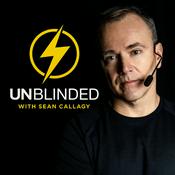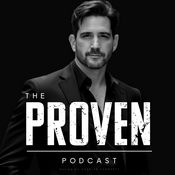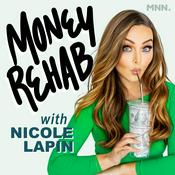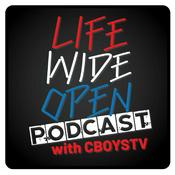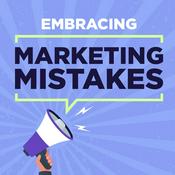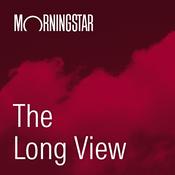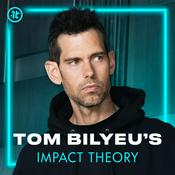39 episodes
- Psychiatry stands at the threshold of one of its greatest disruptions, the rise of artificial intelligence. In this episode, Dr. Mark Mullen speaks with Dr. Allen Frances, Professor Emeritus and former Chair of Psychiatry at Duke University and Chair of the DSM-IV Task Force, about the clinical, ethical, and societal implications of AI’s rapid entry into mental health care. Drawing from his recent paper in the British Journal of Psychiatry (August 2025), Dr. Frances explores how psychotherapy chatbots have already become the world’s most widely used form of therapy, often beneficial for mild distress but profoundly dangerous for severe mental illness.
The discussion examines where chatbots outperform human therapists, where they fail catastrophically, and how clinicians can adapt their practices in anticipation of hybrid human-AI models. Dr. Frances also warns of broader threats, privacy loss, manipulation, and the potential use of AI for political or psychological control This conversation challenges clinicians to approach AI with both curiosity and caution, recognizing its utility while defending the irreplaceable humanity of psychiatric care.
Takeaways:
AI in psychiatry is no longer hypothetical. Over one billion people now engage with chatbots for therapy or companionship, exceeding all human clinicians combined.
Clinical utility is bifurcated. AI can enhance care for mild distress but poses major risks for psychosis, suicidality, and eating disorders.
Validation over truth. Chatbots are programmed to please users, not challenge delusions, amplifying psychosis, mania, and self-harm behaviors.
Privacy and ethics lag behind innovation. Conversations with chatbots may not be confidential, raising serious HIPAA and legal concerns.
Hybrid models are inevitable. Future psychiatrists must integrate AI tools safely, focus on severely ill populations, and preserve the relational aspects machines can’t replicate.
References:
AI Chatbots: The Good, the Bad, and the Ugly (Frances' column in Psychiatric Times): https://www.psychiatrictimes.com/series/ai-chatbots-the-good-the-bad-and-the-ugly
Warning: AI Chatbots will soon dominate psychotherapy (Frances' feature in the British Journal of Psychiatry): https://www.cambridge.org/core/services/aop-cambridge-core/content/view/DBE883D1E089006DFD07D0E09A2D1FB3/S0007125025103802a.pdf/warning_ai_chatbots_will_soon_dominate_psychotherapy.pdf
SUPPORT OUR PARTNERS:
SimplePractice.com/bootcamp (Now with AI documentation! Exclusive 7 day free trial and 50% off four months)
Beat the Boards Boot camp listeners now get FREE access to over 4400 exam-style questions)
Go to Cozy Earth now for a Buy One Get One Free Pajama Offer from 1/25-2/8! Yes, go to cozyearth.com they are doing a BOGO pajama promo. Just use my Code: BOOTCAMPBOGO
Learn more and get transcripts for EVERY episode at https://www.psychiatrybootcamp.com/
For Sales Inquiries & Ad Rates, Please Contact:[email protected]
Connect with HumanContent on Socials: @humancontentpods
Produced by: Human Content
Learn more about your ad choices. Visit megaphone.fm/adchoices - Welcome to Season 4! Join Dr. Mark Mullen and expert guests as we explore AI in psychotherapy, emerging treatments, and the ethical, clinical questions reshaping psychiatric care, and MUCH more.
To share topic ideas, ask questions, and get more of the pod, visit psychiatrybootcamp.com
Learn more about your ad choices. Visit megaphone.fm/adchoices Malingering and Factitious Disorder: An Approach to Clinical Deception with Dr. Nicholas Kontos
8/04/2025 | 1h 21 mins.In this episode, I speak with Dr. Nicholas Kontos, Program Director of the Consultation–Liaison Psychiatry Fellowship at Massachusetts General Hospital, about one of the field’s most challenging topics: malingering and factitious disorder. We discuss how to move beyond the impulse to “catch deception” and instead adopt a framework of clinical curiosity, empathy, and ethical clarity. Dr. Kontos introduces the concept of “thinking dirty”, the disciplined consideration of complex motives such as safety, shelter, or secondary gain, while preserving therapeutic respect. The conversation covers practical strategies for differential diagnosis, documentation, and the therapeutic discharge, reframing it as a compassionate boundary rather than a punishment.
Takeaways:
Clinicians must be willing to consider non-altruistic motives (sex, money, drugs, safety, attention) without moral judgment. This mindset sharpens diagnostic reasoning while maintaining therapeutic respect.The classical distinction between factitious disorder and malingering is often clinically unstable. Both exist on a behavioral spectrum shaped by unmet needs, structural deprivation, and adaptive strategiesProperly framed, discharge is not punitive but restorative, a boundary that ends maladaptive cycles while affirming the patient’s moral agencyThe note itself is a clinical act. A comprehensive chart review, clear description of inconsistencies, and transparent reasoning both protect the patient and clarify physician thought Effective care balances compassion with stewardship of finite resources. Clinicians serve both patient and system by refusing to reinforce maladaptive behavior while still honoring human dignity
Teaching Psychiatric Trainees to “Think Dirty”: Addressing Hidden Motivations in the Consultation Setting (Beach, 2017)
The Therapeutic Discharge I: An Approach to the Management of Deceptive Suicidality (Kontos, 2017)
The Therapeutic Discharge II: An Approach to Documentation in the Setting of Feigned Suicidal Ideation (Kontos, 2018)
SUPPORT OUR PARTNERS:
SimplePractice.com/bootcamp (Now with AI documentation! Exclusive 7 day free trial and 50% off four months)
Beat the Boards Boot camp listeners now get FREE access to over 4400 exam-style questions)
Learn more and get transcripts for EVERY episode at https://www.psychiatrybootcamp.com/
For Sales Inquiries & Ad Rates, Please Contact:[email protected]
Connect with HumanContent on Socials: @humancontentpods
Produced by: Human Content
Learn more about your ad choices. Visit megaphone.fm/adchoicesFunctional Neurological Disorders: Modern Diagnosis & Evidence-Based Management | Dr. Caitlin Adams
7/28/2025 | 51 mins.Functional Neurological Disorder (FND) sits at the crossroads of neurology and psychiatry and for many clinicians, it’s still one of the most challenging diagnoses to understand, explain, and treat. In this episode, I’m joined by Dr. Caitlin Adams, psychiatrist at Massachusetts General Hospital, for a deep dive into how to recognize, diagnose, and manage FND using a modern, evidence-based, and patient-centered approach.We trace the evolution of the diagnosis from hysteria to conversion disorder to today’s understanding of FND and explore what neuroscience now tells us about how these symptoms arise. Dr. Adams breaks down the myths around voluntary control, shows how to make a positive diagnosis based on key exam findings like Hoover’s sign, tremor variability, and seizure features distinguishing PNES from epilepsy, and shares how to communicate the diagnosis in a way that reduces stigma and builds engagement. We also unpack the biopsychosocial model of FND: the predisposing, precipitating, and perpetuating factors that keep symptoms alive and how to intervene through cognitive behavioral therapy (CBT), specialized physical therapy, mindfulness, and psychodynamic approaches.
Takeaways:
FND is a positive diagnosis, not a diagnosis of exclusion. Key findings like Hoover’s sign and tremor variability distinguish functional from organic presentations.Symptoms are not “faked.” FND symptoms are involuntary and arise from disrupted brain networks controlling movement, sensation, and perception.How you explain the diagnosis matters. Patients do better when clinicians validate symptoms, offer clear language, and emphasize that FND is common and treatable.Treatment is multidisciplinary. Evidence-based care combines psychoeducation, CBT, and physiotherapy that retrains motor and sensory patterns.Chronic cases require flexibility. Reassess the diagnosis, re-engage the patient, and adjust treatment around functional goals, not full symptom elimination.
Key References:
Incidence and prevalence of functional neurological disorder: a systematic review (Finkelstein 2025)
Neurosymptoms.org
Cognitive behavioural therapy for adults with dissociative seizures (CODES): a pragmatic, multicentre, randomised controlled trial- (Goldstein 2020)
FND Hope
Overcoming Functional Neurological Symptoms Workbook (Williams)
SUPPORT OUR PARTNERS:
SimplePractice.com/bootcamp (Now with AI documentation! Exclusive 7 day free trial and 50% off four months)
Beat the Boards Boot camp listeners now get FREE access to over 4400 exam-style questions)
Learn more and get transcripts for EVERY episode at https://www.psychiatrybootcamp.com/
For Sales Inquiries & Ad Rates, Please Contact:[email protected]
Connect with HumanContent on Socials: @humancontentpods
Produced by: Human Content
Learn more about your ad choices. Visit megaphone.fm/adchoicesPerinatal Psychiatry: Risk, Ethics, and Clinical Decision-Making with Dr. Christina Wichman
7/21/2025 | 1hPregnancy and postpartum are times of profound change and nowhere is that complexity more visible than in psychiatry. In this episode, Dr. Christina Wichman, Professor of Psychiatry and Obstetrics & Gynecology, Medical Director of The Periscope Project, and Director of Women’s Mental Health at the Medical College of Wisconsin, joins us for a deep dive into reproductive psychiatry. Co-hosted by Erica Browne, an M4 at Saint Louis University School of Medicine, this conversation explores how to care for both mother and baby with empathy, evidence, and balance. We walk through distinctions between baby blues, perinatal depression, and major depressive disorder, discuss how to identify red flags for perinatal psychosis, and explore the ethical and clinical nuances of treating psychiatric illness during pregnancy and lactation. Dr. Wichman explains how to approach risk–benefit decisions around psychotropic medications, highlights validated screening tools, and offers real-world strategies for supporting patients who face barriers to care. We also spotlight The Periscope Project, a pioneering model for connecting clinicians with reproductive psychiatry expertise—and discuss how the field is expanding training, access, and awareness for the next generation of women’s mental health specialists.Takeaways:Pregnancy changes everything, but not always for the worse. Psychiatric treatment during pregnancy can and should be individualized, balancing the safety of both mother and baby.Know the distinctions. Baby blues typically resolve within two weeks; perinatal depression lasts longer, while postpartum psychosis requires urgent evaluation.Medication decisions are about risk versus risk. Untreated psychiatric illness carries real dangers, sometimes greater than the medications themselves.Access matters. Programs like The Periscope Project expand reproductive psychiatry consultation to clinicians everywhere, improving outcomes system-wide.The future is integrated care. Psychiatrists, OB-GYNs, and primary care providers working together can transform perinatal mental health into standard, not specialized, care.
Key References & Clinical Resources
The Periscope Project – A perinatal psychiatry consultation and resource program based in Wisconsin.
National Access Programs – Lifeline for Moms – A directory of statewide perinatal mental health access programs.
National Curriculum in Reproductive Psychiatry (NCRP) – Free, evidence-based training for clinicians in reproductive psychiatry.
MGH Center for Women’s Mental Health – Clinical and research resource for perinatal and reproductive psychiatry.
MotherToBaby – Trusted information on medication and other exposures during pregnancy and breastfeeding.
Pharmacologic Treatments for Mania (Kishi 2021) – Meta-analysis regarding antimanic effects of selective estrogen receptor modulators.
SUPPORT OUR PARTNERS:
SimplePractice.com/bootcamp (Now with AI documentation! Exclusive 7 day free trial and 50% off four months)
Beat the Boards Boot camp listeners now get FREE access to over 4400 exam-style questions)
Learn more and get transcripts for EVERY episode at https://www.psychiatrybootcamp.com/
For Sales Inquiries & Ad Rates, Please Contact:[email protected]
Connect with HumanContent on Socials: @humancontentpods
Produced by: Human Content
Learn more about your ad choices. Visit megaphone.fm/adchoices
More Business podcasts
Trending Business podcasts
About Psychiatry Boot Camp
Your clear, practical introduction to the field of psychiatry. Each episode features a leading expert unpacking complex topics like suicide risk, schizophrenia, catatonia, and childhood anxiety. Originally created as a crash course for new doctors, Psychiatry Boot Camp has grown into essential listening for professionals preparing for residency, advancing their careers, or sharpening their clinical decision-making.
Hosted by psychiatrist and educator Dr. Mark Mullen, the program delivers expert insight and practical teaching opportunities. Thanks to the participation of our incredible audience, the PBC team is proud to provide a trusted resource for students, clinicians, and anyone seeking a deeper understanding of psychiatry in practice.
To Learn More Visit www.psychiatrybootcamp.com
Got a Question? Email [email protected]
Podcast websiteListen to Psychiatry Boot Camp, The Ramsey Show and many other podcasts from around the world with the radio.net app
Get the free radio.net app
- Stations and podcasts to bookmark
- Stream via Wi-Fi or Bluetooth
- Supports Carplay & Android Auto
- Many other app features
Get the free radio.net app
- Stations and podcasts to bookmark
- Stream via Wi-Fi or Bluetooth
- Supports Carplay & Android Auto
- Many other app features

Psychiatry Boot Camp
Scan code,
download the app,
start listening.
download the app,
start listening.


